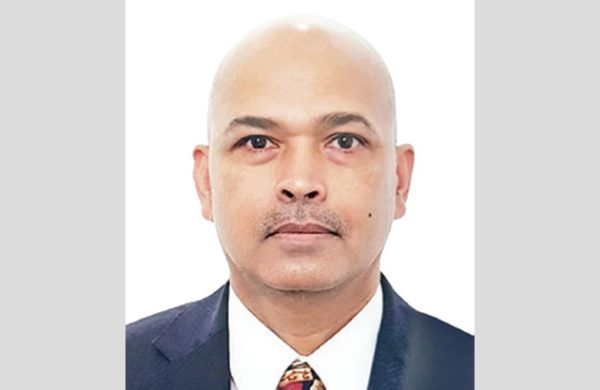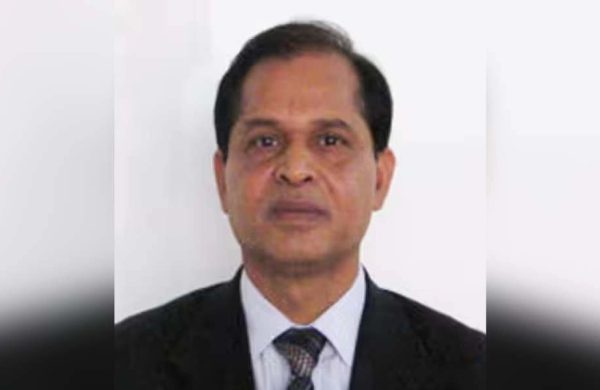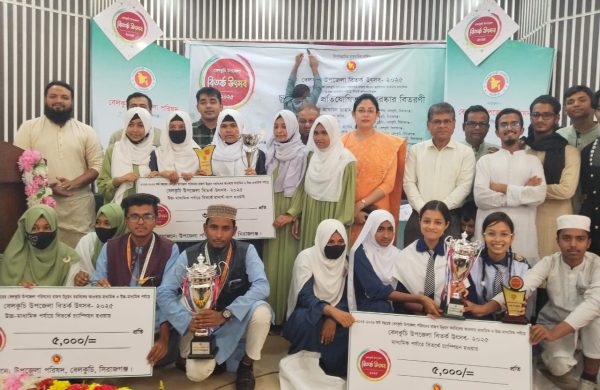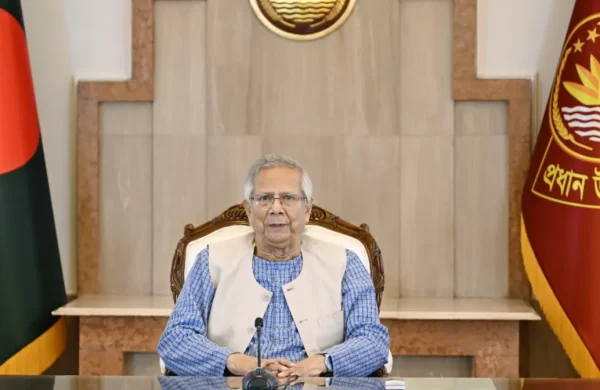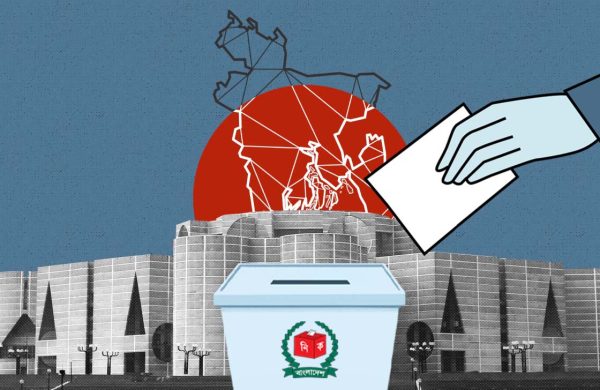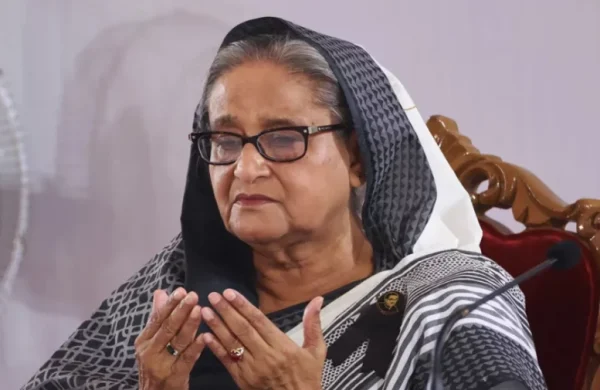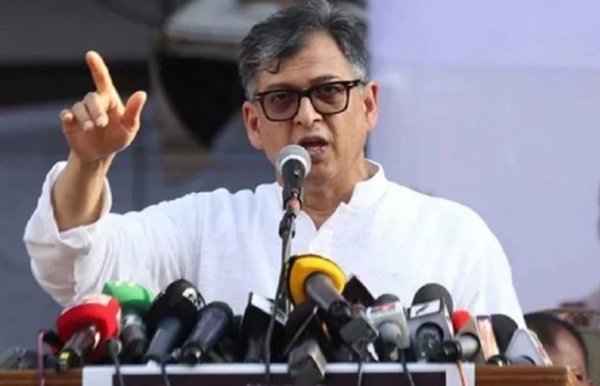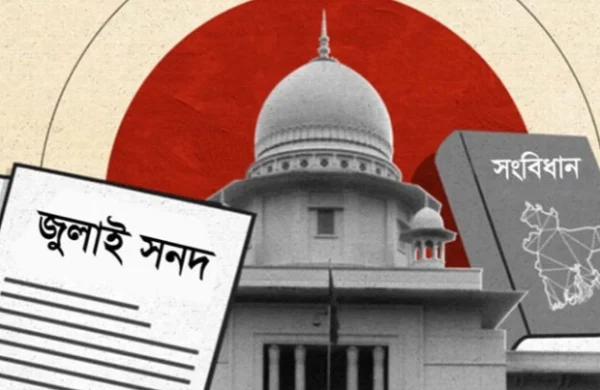Bangladesh heads toward election
- Update Time : Sunday, November 9, 2025

—Hassan Ahmed Chowdhury Kiron—
Amid uncertainty and apprehension surrounding the upcoming national election, Bangladesh’s political scene shifted dramatically on Monday after several major developments. Ending weeks of speculation, the Bangladesh Nationalist Party (BNP) announced candidates for 237 constituencies, marking a significant step toward the February polls.
One of the most notable features of the list is that party chairperson Begum Khaleda Zia will contest from three constituencies, while acting chairman Tarique Rahman is running for office for the first time. After 17 years in exile, leading and uniting the party from abroad, Tarique will now enter the electoral field.
Another major political development came from the Nationalist Citizens’ Party (NCP), a party led by young leaders of the mass uprising, which announced candidacies in seven to eight constituencies, including in Dhaka. The NCP said it would soon field candidates in all 300 constituencies. Meanwhile, the Bangladesh Jamaat-e-Islami, which has been campaigning for its nominated candidates for the past 15 months, continues its efforts across the country.
Recent remarks from BNP, Jamaat and the NCP have signalled that political complexities surrounding the February election may be easing. There were also signs of progress in resolving disputes over the timing of the upcoming referendum. The interim government has urged all political parties to submit a unified directive within a week regarding the referendum and other national issues.
At a press briefing, Law Adviser Professor Asif Nazrul said that if the parties fail to reach consensus, the government will make its own decision. Observers believe that the BNP’s announcement of its candidates has played a crucial role in dispelling doubts about whether the election will be held.
Until now, potential BNP candidates had been conducting outreach without official nominations. With the final list out, nominees have begun campaigning actively, presenting the party’s position and their own credentials to voters, a move that analysts say will help the country shift decisively toward an election mood.
The Jamaat-e-Islami, another major contender in the February election, had already announced candidates in all 300 constituencies and has been campaigning vigorously. The Election Commission has assigned the NCP the “water lily” as its electoral symbol, after the party insisted on a symbol similar to the BNP’s “sheaf of paddy.” NCP’s chief coordinator Nasiruddin Patwari told reporters that the contest between the “sheaf of paddy” and the “water lily” will be fierce.
Despite the apparent progress, differences among BNP, Jamaat, and NCP remain unresolved. Political analysts warn that if these three forces fail to reconcile, the government could face challenges in conducting the national election smoothly.
The interim government has intensified its activities ahead of the polls. It has launched a national campaign titled “Election 2026: The Key Is in Your Hands”, releasing its first teaser on Sunday from Chief Adviser Professor Muhammad Yunus’s verified Facebook page. In the 48-second video, Captain (Retd) Dr Khan Subayel Bin Rafiq, coordinator of the BDR massacre investigation, urges citizens to vote in what he calls “the most important election in the country’s history.”
The administration, too, is preparing for a reshuffle ahead of the polls. According to a November 3 media report, major transfers are planned in the field administration by November 15, including 30 deputy commissioners and over 100 upazila executive officers. Police reshuffles are also under way. Professor Yunus has instructed all agencies to complete election preparations by mid-November.
The government has also decided that officials involved in the 2014, 2018, and 2024 elections will not serve in the upcoming one. Recently, the chiefs of the army, navy and air force met with the chief adviser to discuss election security. He directed them to ensure a peaceful and secure environment for the polls.
The BNP’s announcement of its candidate list was seen as a turning point. It ended speculation about Khaleda Zia’s participation and signalled the party’s formal entry into the election race. She will contest three constituencies — the maximum allowed under current law. Khaleda, a five-time MP, is the only politician in Bangladesh’s history to have won the highest number of constituencies in every credible national election.
This time, the BNP has introduced 83 new candidates, including the sons and daughters of veteran leaders. Following the July Charter, the party has ensured that at least 5% of its candidates are women — ten in total, including Khaleda Zia herself.
Even so, challenges persist. The ongoing divisions among the three major opposition forces — BNP, Jamaat and NCP — threaten to undermine the government’s ability to hold a peaceful election. The Advisory Council has expressed concern over this division and said the government will not mediate.
Law Adviser Asif Nazrul reiterated that political parties must resolve their differences through dialogue. If they fail, the government will make decisions regarding the Charter implementation and the referendum schedule.
In Thursday’s council meeting, most advisers supported holding the national election and referendum on the same day, but left the final decision to the chief adviser. Afterward, government representatives met separately with BNP, Jamaat, and NCP leaders, but failed to reach a consensus.
Many, including Jamaat, welcomed the government’s decision to allow an additional seven days for dialogue. Jamaat had earlier called for discussions with BNP to resolve the political crisis.
However, NCP reacted sharply, accusing the government of “playing snakes and ladders” with reform issues.
The ongoing divisions among former allies of the anti-autocracy movement have worried citizens, who recall the unity that toppled the Sheikh Hasina regime after a 36-day mass uprising earlier this year. That movement saw extraordinary courage — from students like Abu Said, who stood unflinching before police gunfire in Rangpur, to Wasim in Chattogram, and many others who lost their lives across the country.
From school students to traders, homemakers to madrasa pupils — people from all walks of life joined hands in the fight against tyranny. The July uprising, which led to Sheikh Hasina’s fall, remains one of the most defining moments in Bangladesh’s democratic struggle since the Liberation War.
Hundreds were killed, and countless others were wounded. The sacrifices of Said, Wasim, Mugdha, Nafis, and others will forever be etched in the nation’s history.
Following the uprising, an interim government led by Professor Muhammad Yunus was formed. But the unity among pro-democracy forces that emerged during the movement is now fracturing over electoral politics.
Analysts warn that if the political divide deepens and parties ignore the chief adviser’s warning of possible sabotage, the election could face uncertainty — risking the resurgence of authoritarian forces and undermining Bangladesh’s democratic transition.
If that happens, the blood and sacrifice of the July martyrs may once again be in vain.
——————————————————————————
The writer is the chairman of Debate for Democracy. [email protected]


